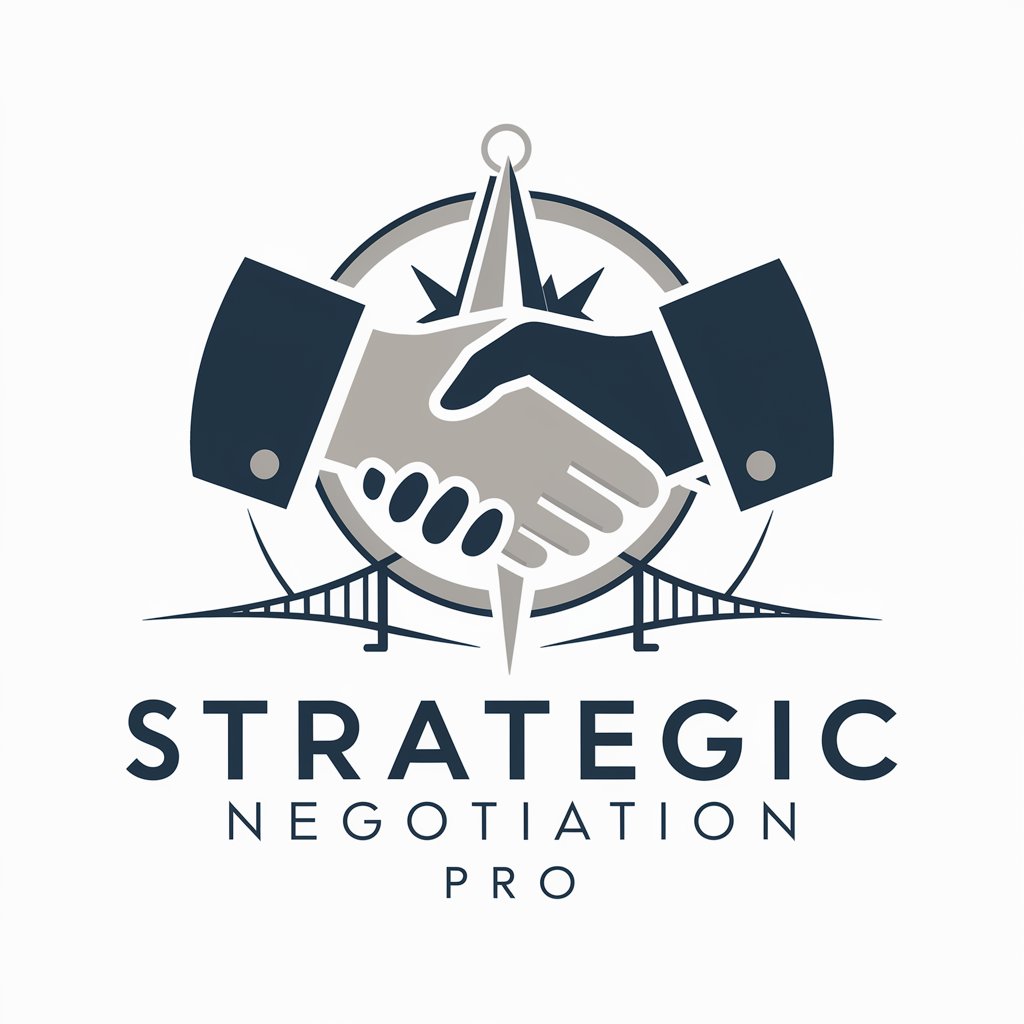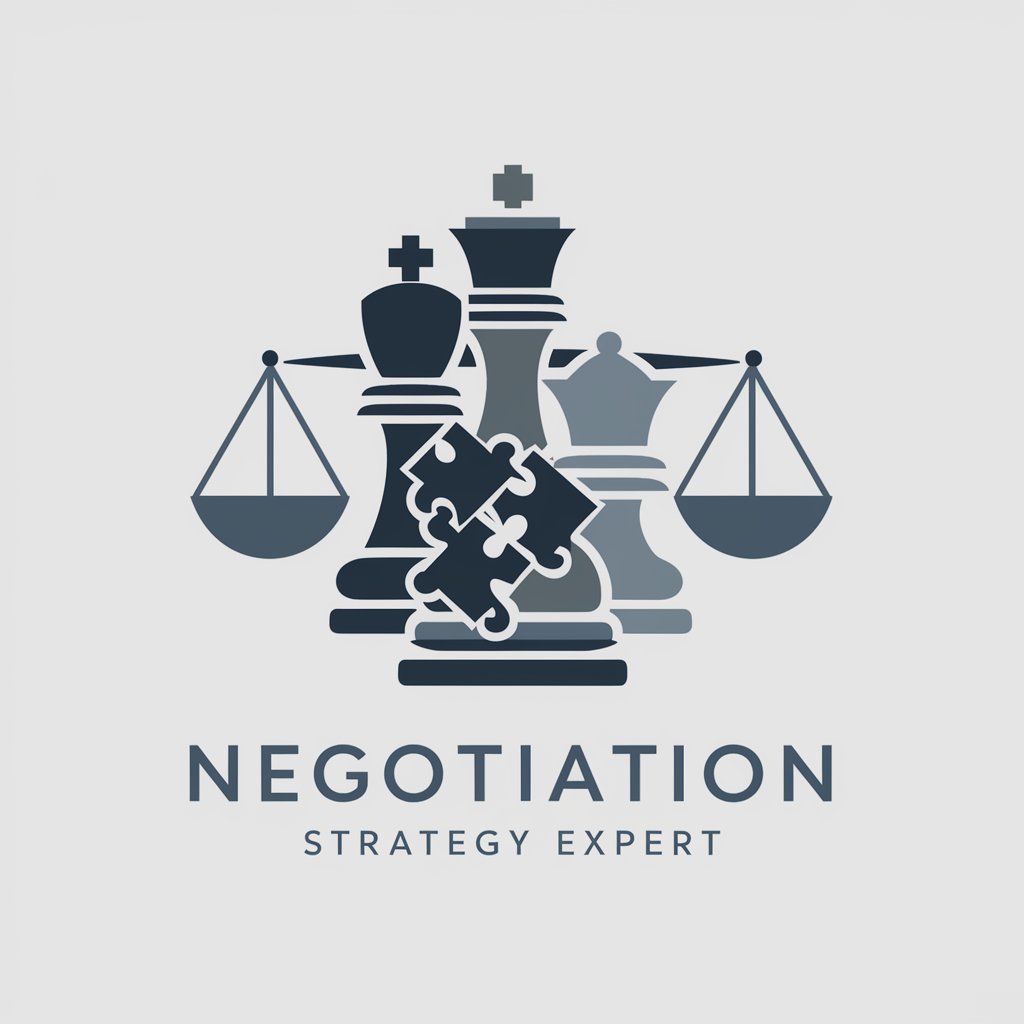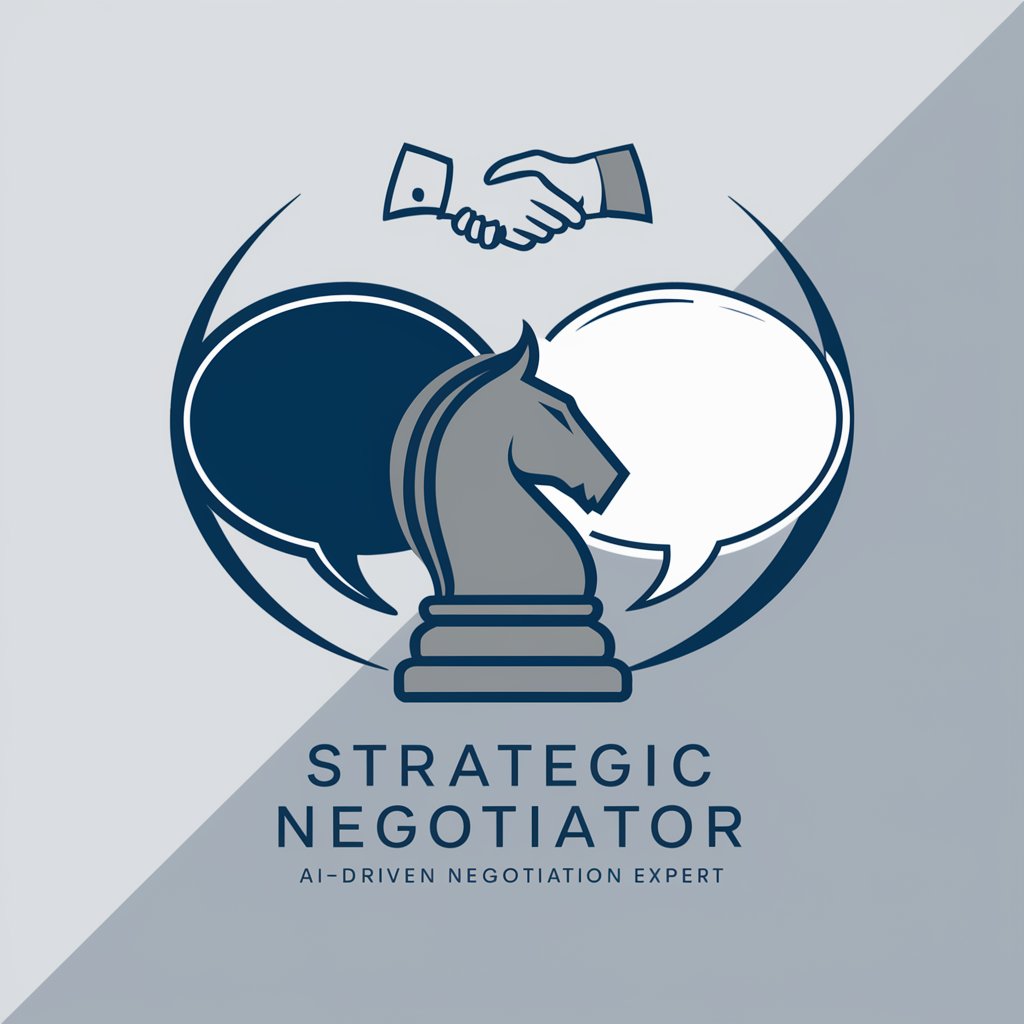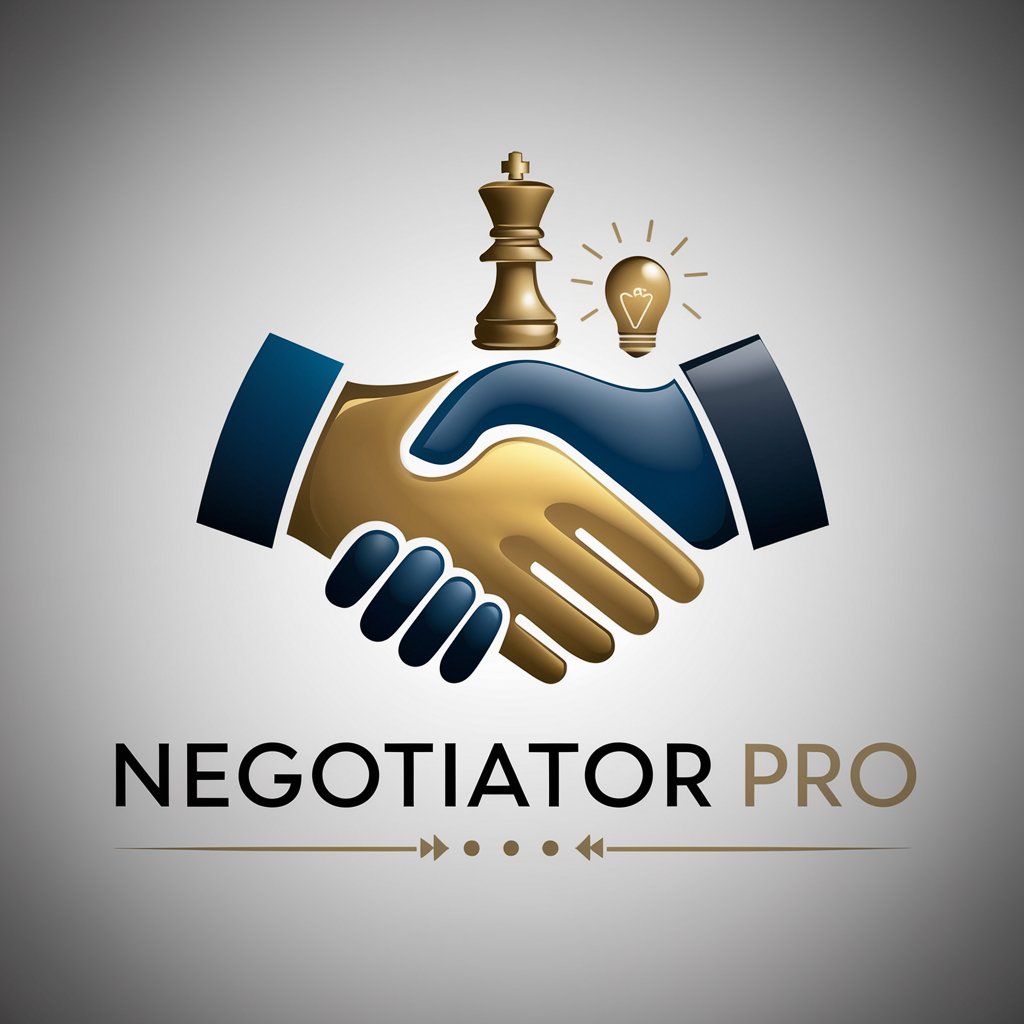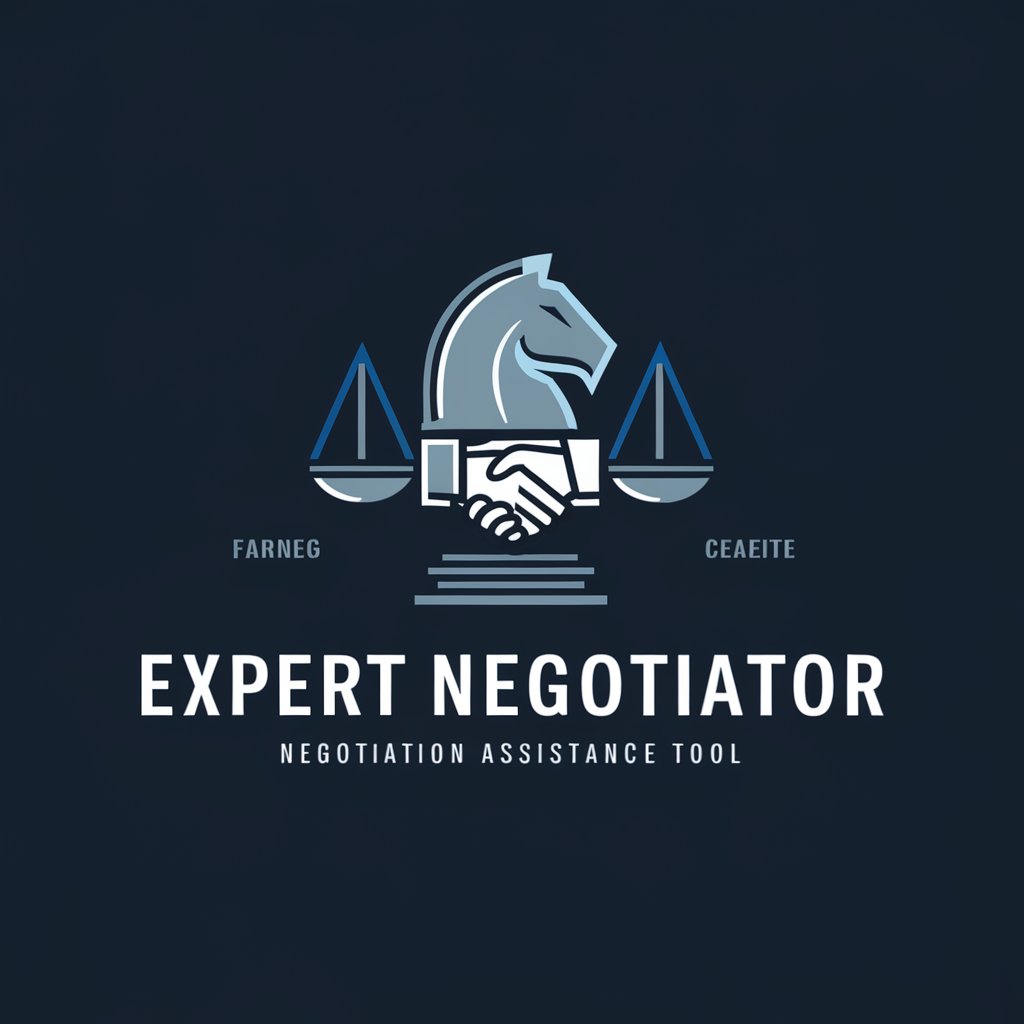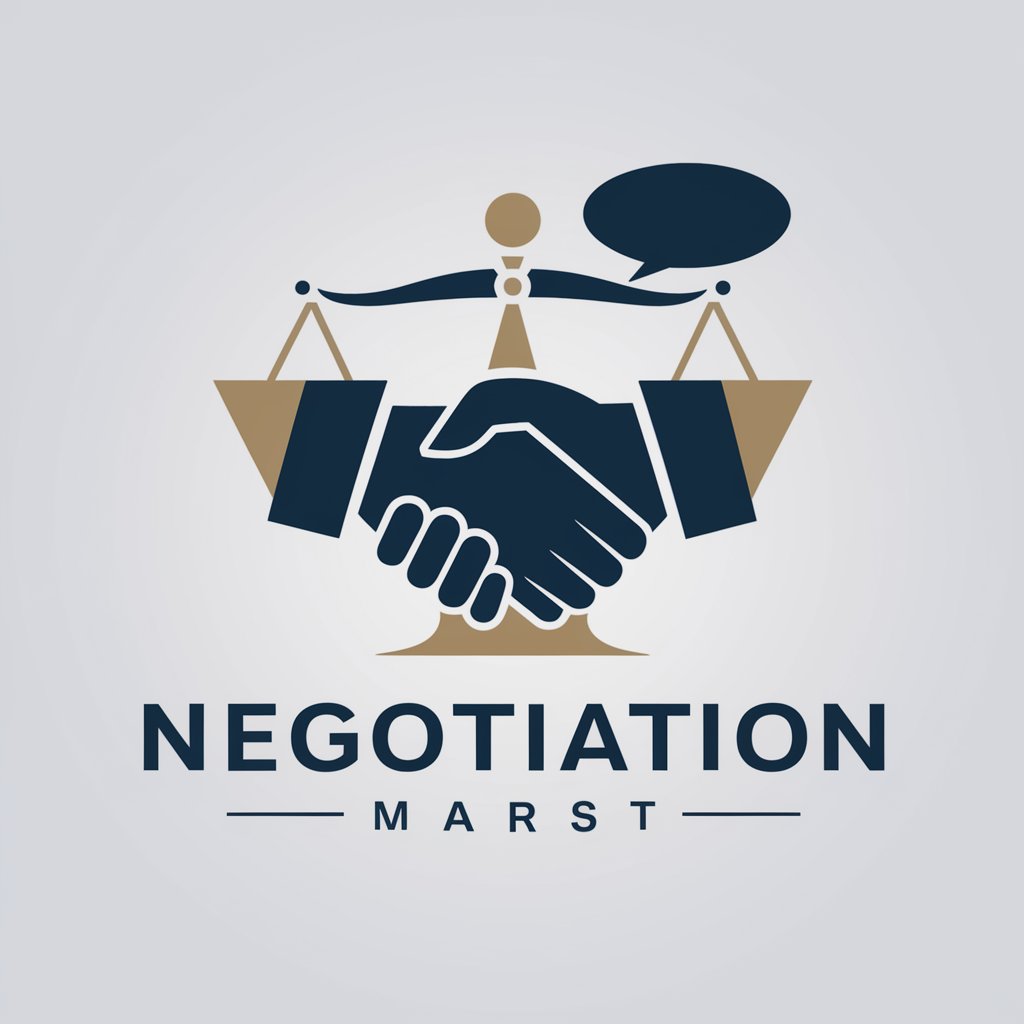
Strategic Negotiator - AI-powered Negotiation Assistant

Ready to refine your negotiation tactics?
Empower negotiations with AI intelligence
Begin Negotiation
Solicit Initial Offer
Provide Initial Bid
Prepare Counters
Get Embed Code
Introduction to Strategic Negotiator
The Strategic Negotiator is designed as an advanced tool for facilitating negotiation processes, leveraging AI to provide strategic advice, insights, and tactical recommendations tailored to enhance the bargaining position of buyers in commercial transactions. Rooted in principles of game theory, behavioral economics, and strategic management, this tool analyzes negotiation dynamics to identify leverage points, assess strengths and weaknesses of both parties, and recommend negotiation strategies. It focuses on creating a structured approach to negotiations, offering guidance on bid initiation, messaging to alter the seller's time preferences, and tactical engagements. For instance, in a procurement negotiation, Strategic Negotiator could advise on how to restructure the scope of requirements to gain a better price or terms from suppliers, suggesting when to consolidate components into a single provider or distribute them among several to enhance competitive leverage. Powered by ChatGPT-4o。

Main Functions of Strategic Negotiator
Assessment of Competitive Leverage Opportunities
Example
In a scenario where a buyer is negotiating with multiple suppliers for component parts, Strategic Negotiator assesses each supplier's market position, delivery capabilities, and the buyer's own requirements to identify opportunities for leverage, such as exploiting time-sensitive needs of a supplier to secure more favorable terms.
Scenario
Identifying a supplier's overstock situation to negotiate lower prices.
Guidance on Initial Plan of Engagement
Example
For a company seeking to procure IT services, Strategic Negotiator recommends initiating a bid process with specific pricing strategies, based on an analysis of the IT service market and the buyer's project timelines and budget constraints.
Scenario
Crafting a bidding strategy that leverages the buyer's timeline flexibility to attract competitive offers from IT service providers.
Recommendations on Tactical Engagements
Example
Advising a buyer on when to go dark (pause communications) to create uncertainty for the seller, potentially leading to more favorable terms upon re-engagement.
Scenario
Using communication pauses strategically during negotiations for a real estate purchase to signal willingness to walk away, thereby improving the buyer's negotiating position.
Restructuring of Requirements
Example
In negotiations for manufacturing contracts, suggesting the descoping of non-essential requirements or the consolidation of contracts to improve bargaining power and reduce costs.
Scenario
Advising a manufacturer on how to re-allocate component production among suppliers to optimize costs and timelines, based on an analysis of supplier capabilities and market conditions.
Ideal Users of Strategic Negotiator Services
Procurement Professionals
Procurement specialists who negotiate contracts for goods and services across various industries. They benefit from Strategic Negotiator's insights on supplier leverage, pricing strategies, and contract terms optimization to achieve cost savings and value maximization.
Corporate Strategists
Executives and decision-makers involved in high-stakes negotiations, such as mergers and acquisitions, strategic partnerships, and vendor agreements. They utilize the tool's strategic analysis to strengthen their bargaining position, identify negotiation levers, and make informed decisions.
Legal Negotiators
Attorneys and legal professionals engaged in negotiation processes related to settlements, contractual agreements, and dispute resolutions. Strategic Negotiator aids in understanding the opposing party's position, crafting persuasive arguments, and determining the optimal negotiation tactics.
Small Business Owners
Entrepreneurs and small business owners who often negotiate directly with suppliers, clients, and service providers. The tool offers them strategic advice on how to navigate negotiations effectively, even without a dedicated procurement or legal team, leveling the playing field with larger entities.

How to Use Strategic Negotiator
1
Begin by visiting yeschat.ai for an obligation-free trial, accessible without the need for login or a ChatGPT Plus subscription.
2
Upload your negotiation toolkit document directly on the platform. This document should detail the negotiation context, objectives, and any preliminary information about the other party.
3
Review the generated Strategic Negotiator analysis, which will include an assessment of leverage opportunities, strengths and weaknesses, and recommended strategies.
4
Apply the recommended tactics and strategies in your negotiation, adjusting your approach based on ongoing insights and feedback from the Strategic Negotiator.
5
After the negotiation, submit an After Action report back to the tool for a comprehensive review of tactics, outcomes, and adherence to the Strategic Engagement Doctrine.
Try other advanced and practical GPTs
Carl Jung
Unlock the psyche with AI-driven Jungian analysis

Procurement Pro
Empowering Procurement with AI Insight

Design Mentor
Elevate Design with AI Insights

Regulations.AI
Navigate AI Laws Effortlessly

Bambaiya Bot
Immerse in Mumbai's culture, AI-powered.

Brand Advisor
Elevating Brands with AI-Powered Insights

Valere | DiscoveryGPT
Transforming documents into actionable insights.
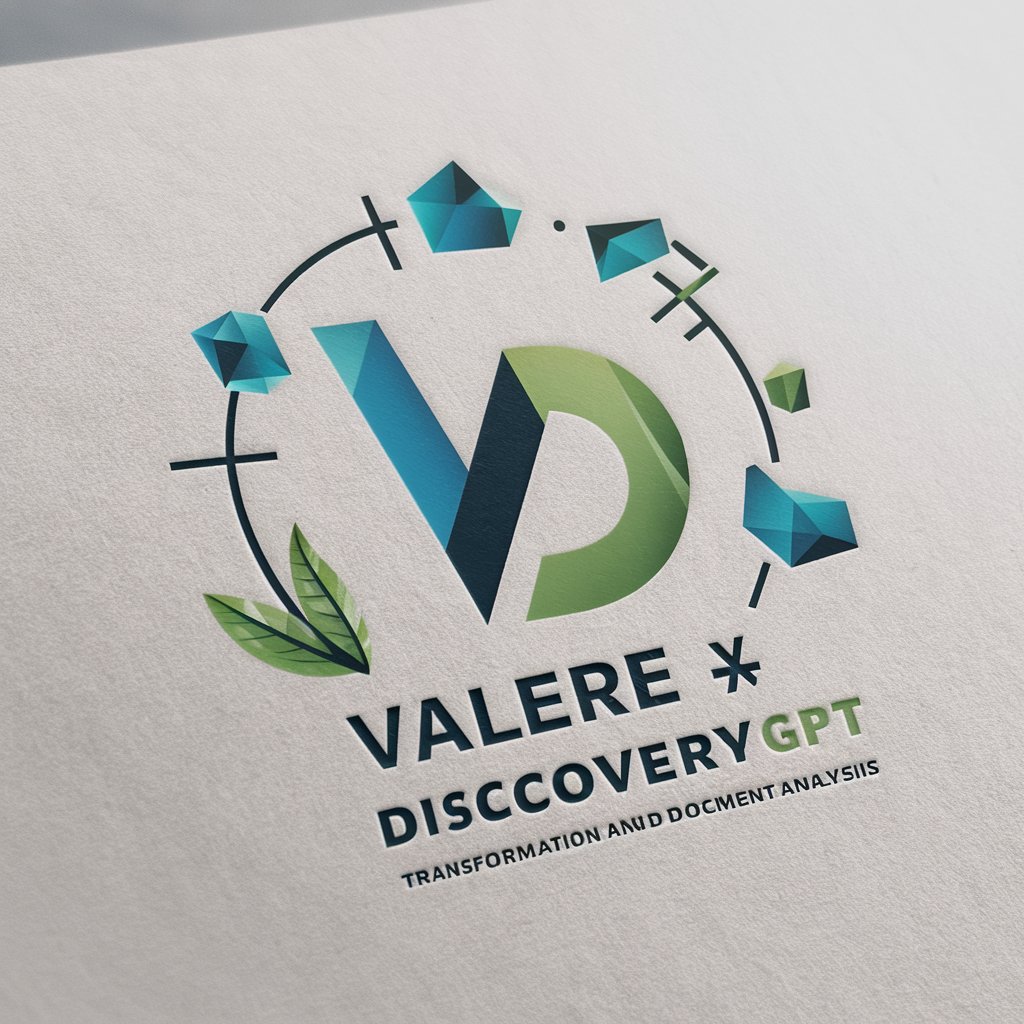
Blog Writer
Empowering Your Words with AI

FL Studio
Empower Your Sound with AI-Driven Music Creation

Selenium Sage
Elevate Your Selenium Testing with AI

Insight Navigator
Demystifying Data Science, AI-Powered Insights

GDPR Expert
AI-Powered GDPR Guidance

FAQs about Strategic Negotiator
What is the Strategic Engagement Doctrine?
The Strategic Engagement Doctrine is a set of principles and tactics designed to optimize negotiation outcomes by leveraging competitive intelligence, adjusting time preference requirements, and strategically engaging with the other party to enhance positioning and leverage.
Can Strategic Negotiator assist with negotiations across different industries?
Yes, Strategic Negotiator is versatile and can be applied across various industries. It analyzes specific negotiation contexts and offers customized strategies, making it effective for a wide range of negotiation scenarios.
How does the tool adjust tactics based on new information?
Strategic Negotiator recommends adjustments to tactics and strategies as new information becomes available during the negotiation process. This includes suggesting narrative changes, bid adjustments, and engagement tactics to maintain or improve leverage.
Is there a way to simulate negotiation scenarios using Strategic Negotiator?
While Strategic Negotiator primarily analyzes real negotiation contexts, its insights can be used to simulate and prepare for potential negotiation scenarios by applying its tactics and strategies in hypothetical situations.
How does Strategic Negotiator help in changing the seller's time preference?
Strategic Negotiator recommends narrative and messaging strategies designed to influence the seller's urgency and timelines. By altering the perceived value and necessity of a quick deal, it seeks to align the seller's time preferences more closely with the buyer's objectives.
